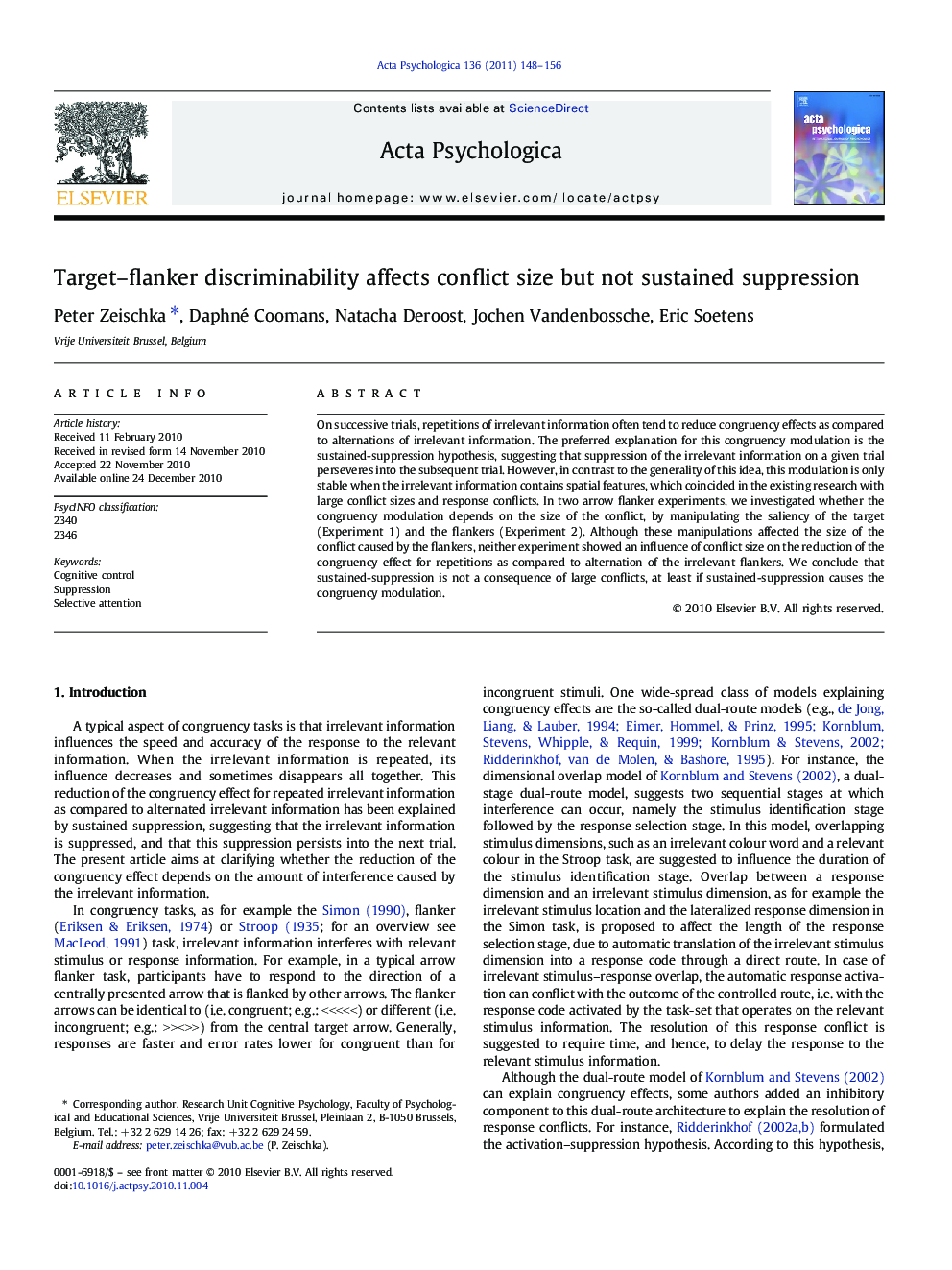| Article ID | Journal | Published Year | Pages | File Type |
|---|---|---|---|---|
| 920314 | Acta Psychologica | 2011 | 9 Pages |
On successive trials, repetitions of irrelevant information often tend to reduce congruency effects as compared to alternations of irrelevant information. The preferred explanation for this congruency modulation is the sustained-suppression hypothesis, suggesting that suppression of the irrelevant information on a given trial perseveres into the subsequent trial. However, in contrast to the generality of this idea, this modulation is only stable when the irrelevant information contains spatial features, which coincided in the existing research with large conflict sizes and response conflicts. In two arrow flanker experiments, we investigated whether the congruency modulation depends on the size of the conflict, by manipulating the saliency of the target (Experiment 1) and the flankers (Experiment 2). Although these manipulations affected the size of the conflict caused by the flankers, neither experiment showed an influence of conflict size on the reduction of the congruency effect for repetitions as compared to alternation of the irrelevant flankers. We conclude that sustained-suppression is not a consequence of large conflicts, at least if sustained-suppression causes the congruency modulation.
